Venomous Reptiles Bill to Make Release a Felony Offense
Snake lovers express concern over far-reaching impacts
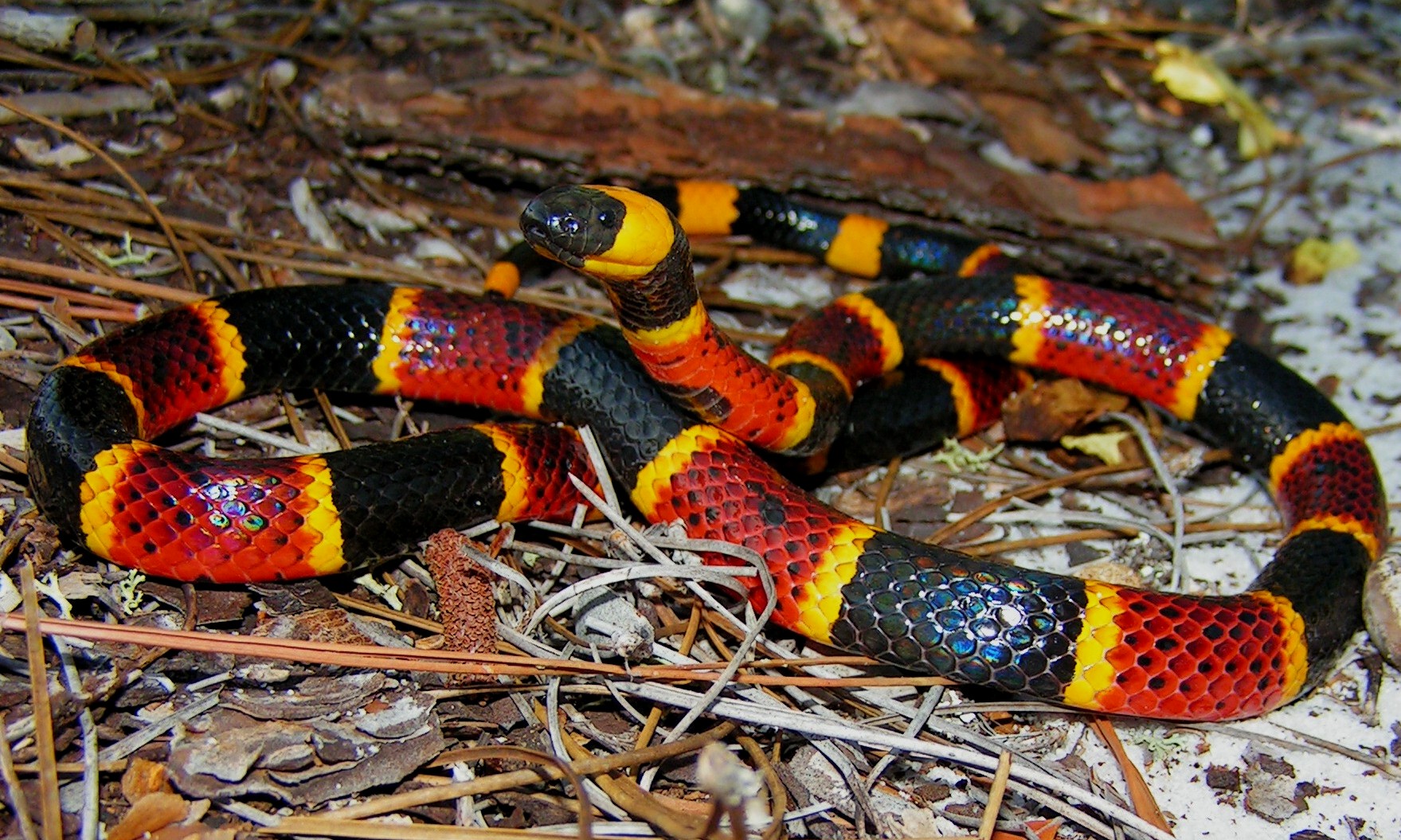
Above: Eastern coral snake, one of six venomous snakes native to Florida (Photo by Daniel Parker)
Animal welfare advocates, scientists, nuisance wildlife trappers, and snake enthusiasts are concerned that a bill moving through the Florida legislature will make it a felony to release a live, native venomous snake for research, conservation, or humane relocation purposes. The Florida Fish and Wildlife Conservation Commission (FWC) drafted the text for SB1164 and the accompanying HB1161 and has lobbied their progress under the pretext of preventing the illegal sale and release of venomous reptiles, especially nonnative species. However, the broad wording of the text of the bill seems to prohibit the humane relocation and release of native venomous snakes.
Florida is home to six native species of venomous snakes. These include the Eastern diamondback rattlesnake, Canebrake (Timber) rattlesnake, Dusky pygmy rattlesnake, Florida cottonmouth (“Water moccasin”), Southern copperhead, and Eastern coral snake. Two of those species, the Canebrake rattlesnake and Southern copperhead, are only found in small areas of Northern Florida. The Eastern diamonback rattlesnake is a candidate species for Federal listing under the Endangered Species Act. Despite the prevalence of these species in Florida, bites are relatively rare. The majority of snake bites in Florida involve people intentionally handling or trying to kill the snakes.
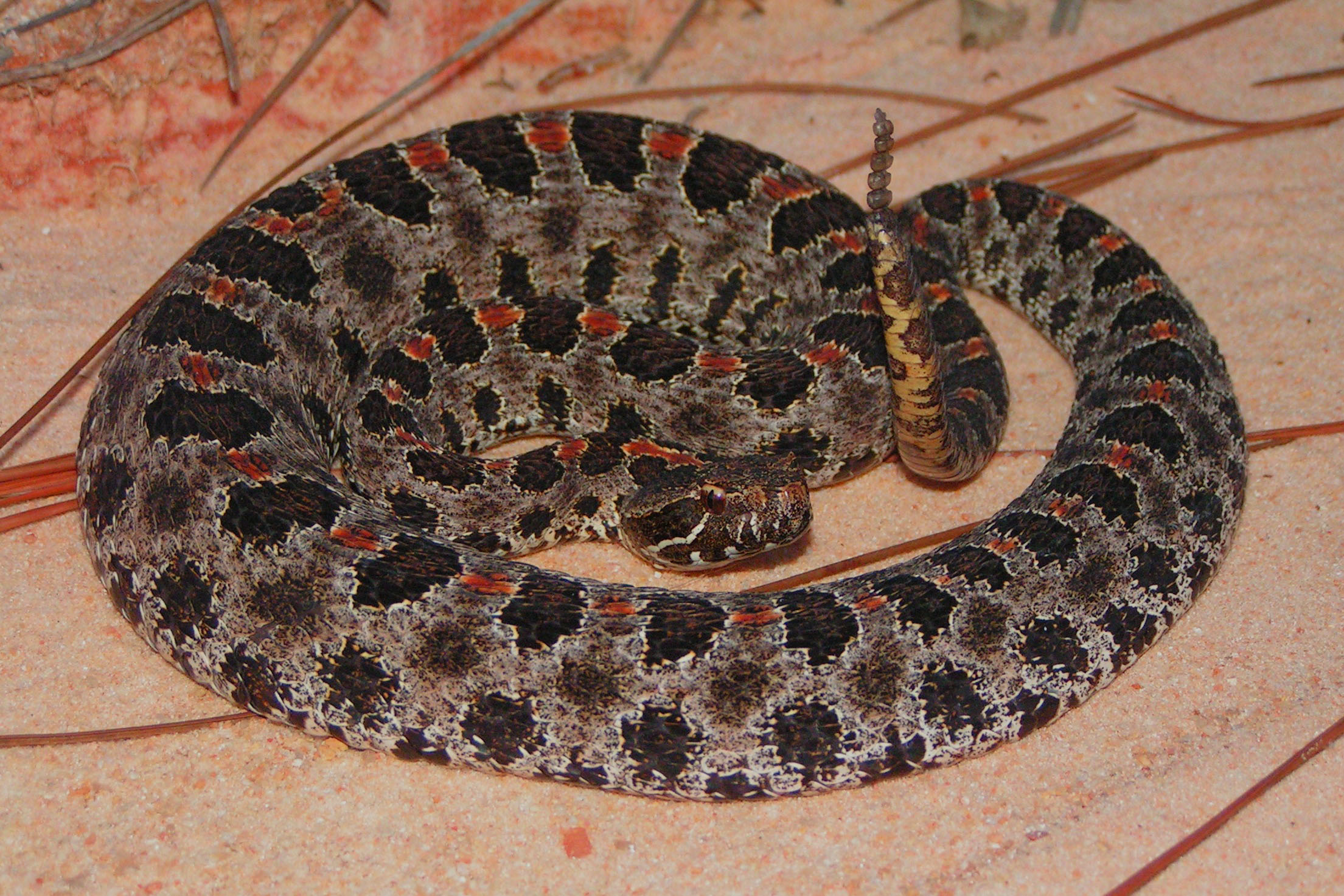
Above: Dusky pygmy rattlesnake, the smallest of Florida’s venomous snakes (Photo by Daniel Parker)

Above: Canebrake rattlesnake, a species only occurring in northeastern Florida (Photo by Daniel Parker)
The concerning text of the bill is as follows: "A person who knowingly releases a venomous reptile or who through gross negligence allows a venomous reptile to escape commits a Level 4 violation, punishable as provided in 379.4015." The text of the bill does not specify that it applies to nonnative venomous species.
Under the provisions of this bill, a violation of this law will be punishable by up to five years prison, five years probation, and a $5,000 fine. Data does not support the claim that increased penalties reduce violations. However, such punitive measures are often politically popular.
Native venomous snakes are frequently captured and released in scientific research projects. Stetson University is well known for its decades of research on biology and habitats of Dusky pygmy rattlesnakes in Central Florida. University of Central Florida has conducted several studies on the impacts of roads on wildlife which have necessitated the capture, tagging, and recapture of native venomous snakes. "Venomous snakes play a valuable role in the ecology of Florida's last remaining wild regions," said Daniel Parker, an environmental scientist with DRMP and formerly of University of Central Florida. "Research on the ecology of native venomous snake species is necessary to understand the ecosystem as a whole. Without exceptions in the language of the bill, that valuable research is threatened," said Parker.
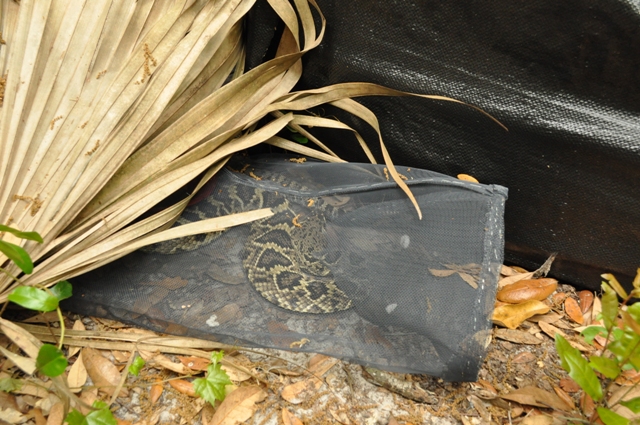
Above: Eastern diamondback rattlesnake trapped for research by University of Central Florida (Photo by Adam Casavant)
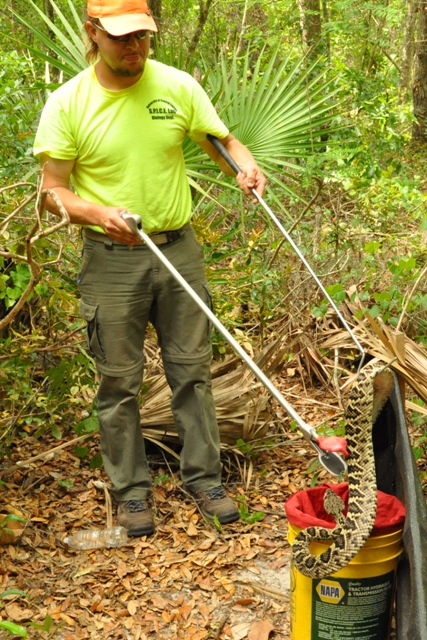
Above: Eastern diamondback rattlesnake captured for research by Daniel Parker of University of Central Florida before being tagged and released (Photo by Adam Casavant)
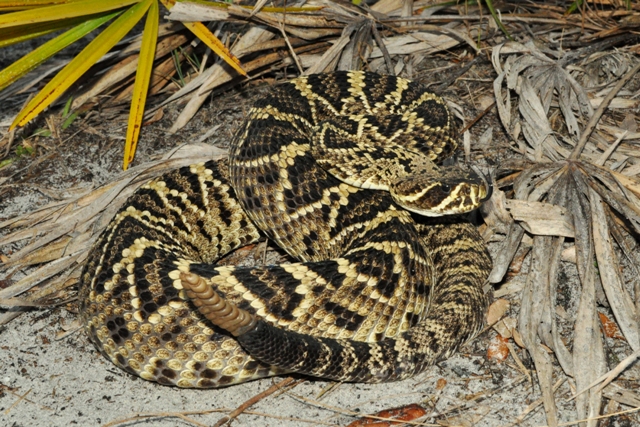
Above: Eastern diamondback rattlesnake captured, tagged, and released as part of a University of Central Florida research project (Photo by Daniel Parker)
Tony Daly-Crews, founder of the Rattlesnake Conservancy, said of the bill, “If applied in the way it is read, any permittee would not be able to legally capture and relocate or release captured study animals.” Daly-Crews is not alone in his concern. Chase Pirtle, biologist and Manager of the Ashton Biological Preserve, said, "This bill has the potential to hinder conservation efforts, community education, as well as vital field research. FWC continues to focus on issues that are not addressing Florida's true conservation threats."
Nuisance wildlife trappers have also expressed concern that this bill would eliminate humane relocation of native venomous snakes. Most of these trappers prefer to relocate live venomous snakes away from residential areas and release them in areas where they pose little risk to people. Reptile enthusiast Marisa Ai Ishimatsu commented, “Basically they want all venomous snakes to be killed? That seems to be the only way to deal with a nuisance snake that’s been removed.”
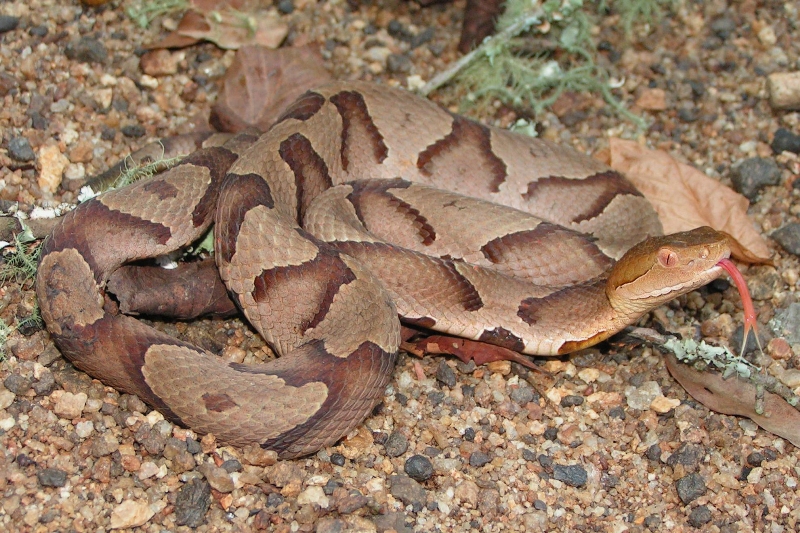
Above: Southern Copperhead, a species only found in some areas of the Florida panhandle (Photo by Daniel Parker)
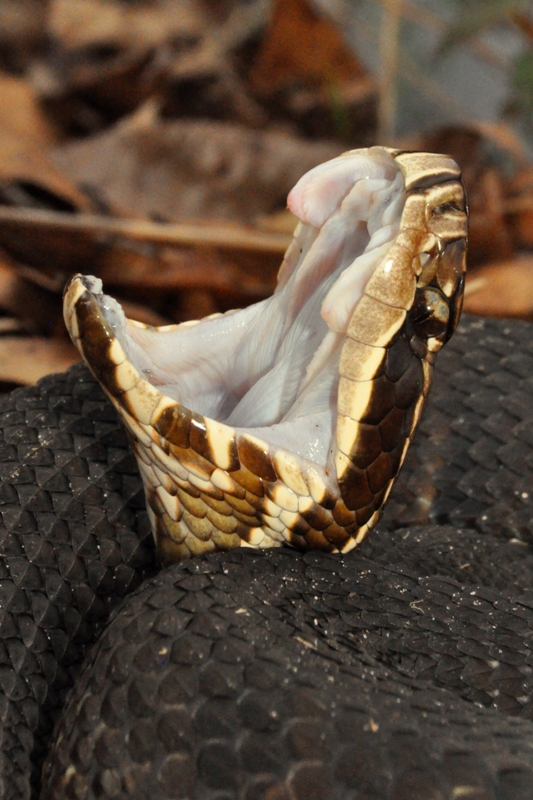
Above: Florida cottonmouth (or “Water moccasin”) showing white interior of the mouth (Photo by Daniel Parker)
Glenn Bartolotti, the founder of Project Simus Florida, an organization which promotes conservation of native snakes and protection of habitat, said, "This bill doesn't fix any problems with our environment or conservation of our wildlife; it complicates things and creates more problems." Bartolotti added, "They're making too many rules that can't be followed in any kind of logical manner. The only thing that is really going to help Florida's environment is to stop destroying it."
Katrina Shadix of Bear Warriors United released a statement on her Facebook page addressing the bill: "With 1000 new people moving to Florida every day, it is unfortunate that some of them have trouble accepting and peacefully coexisting with our native wildlife, be that bears or snakes. I'm constantly seeing people post on social media about killing snakes and other animals. By failing to provide a humane option for live relocation of venomous snakes, this bill is encouraging people to kill snakes. This law could make the assault on our native wildlife even worse than it is now. I hope that this bill will be reconsidered so that it does not discourage those who might relocate native snakes for humane or conservation purposes."
Out of concern for the potential for overreach by FWC, the United States Association of Reptile Keepers Florida (USARK FL) requested the text of the bill after it was announced as a legislative initiative at the December 2022 FWC meeting. FWC did not comply with this request. "We are not against reasonable regulation," said USARK FL President Elizabeth Wisneski. She added, "Unfortunately, as with other FWC rules and legislation created without stakeholder input, this bill will likely have unintended consequences."
To obtain a permit from FWC to keep venomous reptiles in captivity, permittees must document 1000 hours of experience working with the family of the venomous reptile they intend to keep. They must also adhere to strict facility and caging standards, which are enforced by regular FWC inspections. Florida is one of the top producers in the world of venom to support the production of antivenin to treat snake bite.
FWC has indicated that the primary intent of this legislation is to enhance penalties for violations of existing law. Statistics do not support the need for that. Historically, there have been relatively few citations issued for activities involving venomous reptiles, because the vast majority of individuals who work with venomous reptiles comply with the law.
Central Florida attorney and noted conservationist Curt Harbsmeier said, "They are turning law abiding citizens, most of whom have no criminal record whatsoever, into criminals in many cases. Absent malice aforethought, none of this stuff should be a felony."
View the bills at these links:
https://www.flsenate.gov/Session/Bill/2023/1164
https://www.myfloridahouse.gov/Sections/Bills/billsdetail.aspx?BillId=77947&SessionId=99
For additional photos or information on this topic, or to schedule an interview, please call 863-441-5067 or email media@usarkfl.net.